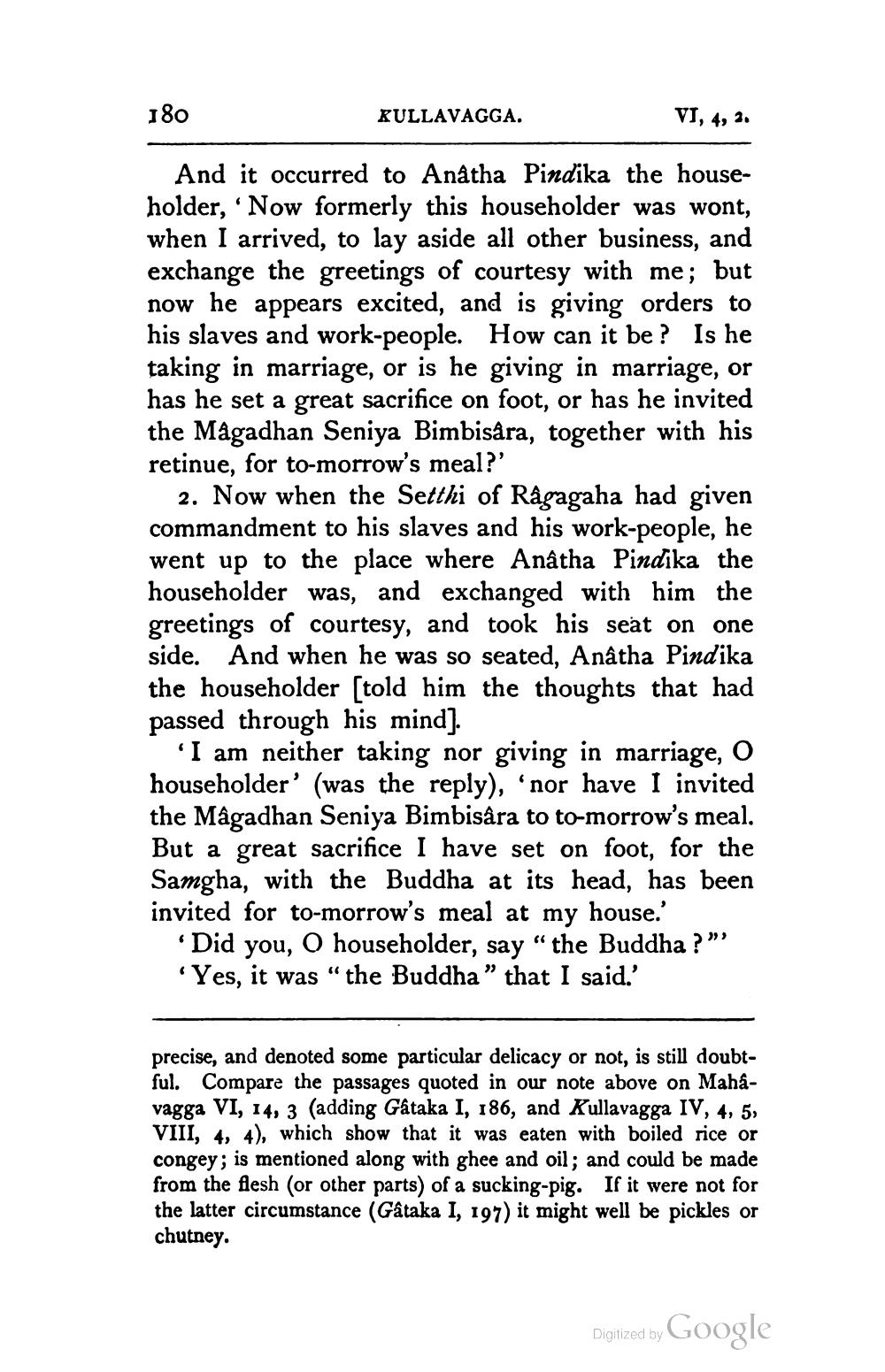________________
180
KULLAVAGGA.
VI, 4, 3.
And it occurred to Anatha Pindika the householder, 'Now formerly this householder was wont, when I arrived, to lay aside all other business, and exchange the greetings of courtesy with me; but now he appears excited, and is giving orders to his slaves and work-people. How can it be? Is he taking in marriage, or is he giving in marriage, or has he set a great sacrifice on foot, or has he invited the Mâgadhan Seniya Bimbisåra, together with his retinue, for to-morrow's meal?'
2. Now when the Setthi of Râgagaha had given commandment to his slaves and his work-people, he went up to the place where Anatha Pindika the householder was, and exchanged with him the greetings of courtesy, and took his seat on one side. And when he was so seated, Anatha Pindika the householder (told him the thoughts that had passed through his mind).
'I am neither taking nor giving in marriage, O householder' (was the reply), 'nor have I invited the Magadhan Seniya Bimbisâra to to-morrow's meal. But a great sacrifice I have set on foot, for the Samgha, with the Buddha at its head, has been invited for to-morrow's meal at my house.'
Did you, O householder, say “the Buddha ?” “Yes, it was “the Buddha" that I said.'
precise, and denoted some particular delicacy or not, is still doubtful. Compare the passages quoted in our note above on Mahavagga VI, 14, 3 (adding Gataka I, 186, and Kullavagga IV, 4, 5, VIII, 4, 4), which show that it was eaten with boiled rice or congey; is mentioned along with ghee and oil; and could be made from the flesh (or other parts) of a sucking-pig. If it were not for the latter circumstance (Gâtaka I, 197) it might well be pickles or chutney.
Digitized by Google




